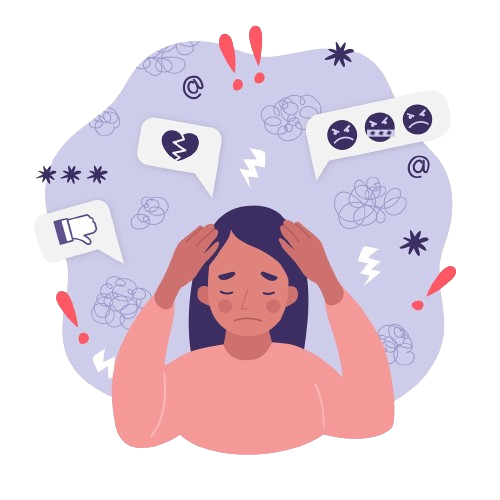ADHD (Attention Deficit Hyperactivity Disorder) is a neurodevelopmental disorder that affects millions of people worldwide. Recent research has identified 7 types of ADHD based on the unique symptoms and characteristics individuals may experience. Understanding these different types can help improve diagnosis and treatment approaches for those living with ADHD.

ADHD is a neurodevelopmental disorder characterized by difficulties with attention, impulsivity, and hyperactivity. Individuals in need of ADHD treatment may have trouble focusing on tasks, controlling their impulses, and sitting still for extended periods. It can impact various areas of daily life, including school performance, work productivity, relationships, and overall quality of life.
The 7 types of ADHD can have overlapping symptoms. However, unique symptoms are often associated with each type, which helps in diagnosis and treatment.
Individuals with Anxious ADHD may experience symptoms of excessive worry, fear, and anxiety in addition to typical ADHD symptoms.
The classic symptoms of inattention, impulsivity, and hyperactivity characterize this type. Other symptoms include difficulty focusing on tasks for long periods, impulsive decision-making without considering consequences, fidgeting or squirming, and talking excessively.
People with over-focused ADHD tend to fixate on specific tasks or ideas to the point where it interferes with their ability to switch focus when needed. Symptoms may include rigid thinking patterns, negative thoughts or behaviors, and difficulties completing tasks efficiently.
This type of ADHD is often associated with intense emotions, unpredictable behavior, outbursts, irritability, and mood swings, along with impulsivity and hyperactivity seen in other types of ADHD. Other common symptoms may include hypersensitivity to light, sound, and touch.
Those with temporal lobe ADHD may exhibit symptoms related to temporal lobe dysfunction, such as memory issues, mild paranoia, emotional dysregulation, aggression, and difficulties processing information. They will also experience common symptoms associated with classic ADHD.
Individuals with inattentive ADHD tend to have predominant symptoms of inattention, including being easily distracted, forgetful, having short attention spans, procrastinating, daydreaming, and being disorganized. Individuals often have trouble staying focused on tasks or conversations, frequently misplace items, and struggle to complete tasks that require sustained mental focus.
Limbic ADHD is characterized by increased sensitivity to criticism or rejection, along with feelings of guilt and helplessness. Other symptoms may include sadness, lack of energy, mood swings, irritability, and anger outbursts.
ADHD is usually diagnosed through a comprehensive evaluation conducted by a qualified healthcare provider, such as a psychiatrist or psychologist. During this evaluation, the provider collects information about the individual's medical history, symptoms, and behaviors.
Next, a physical exam may be conducted to rule out any underlying medical conditions that could be causing ADHD-like symptoms. The individual is often given behavior assessments using rating scales and questionnaires to determine the presence of ADHD symptoms and their impact on daily routines.
Once a diagnosis is made, the healthcare provider collaborates with the client to develop a personalized care and treatment plan.

Treatment options for ADHD include using a variety of different methodologies personalized to each individual’s specific needs and ADHD diagnosis. These can include:
The 7 types of ADHD highlight the diverse ways in which this neurodevelopmental disorder can manifest. Understanding these distinct types can lead to more targeted interventions and personalized treatment approaches for individuals living with ADHD. By recognizing and addressing the specific symptoms and characteristics associated with each type of ADHD, healthcare providers, and individuals can work together to develop effective treatment and care plans to manage their symptoms and improve their overall mental health and well-being.
It is easy to find personalized ADHD treatment in Atlanta at Atlanta Integrative Psychiatry. Our caring and compassionate team of mental health experts is dedicated to providing individualized care tailored to your unique needs and symptoms. Take the first step toward better mental health by contacting us to schedule an appointment today.
Atlanta Integrative Psychiatry is an Industry leader in mental health treatment . Our team of top medical experts specialize in dual diagnosis treat and are committed to ensuring that each patient is treated as an individual.
Call us today, we're avialable 24/7.
Get Help Now
Request a Confidential Callback Today!